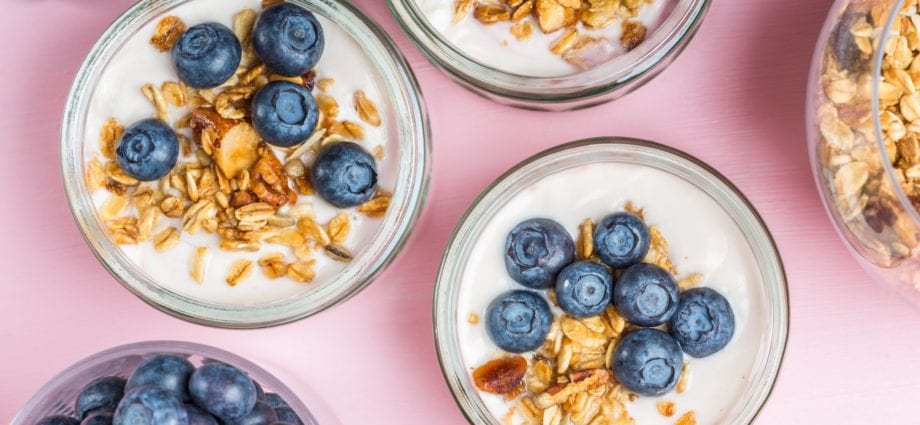Eating a nutritious breakfast is the best way to start your day, especially if your meal includes healthy foods.
Breakfast, according to nutritionist Sarah Elder, is your duty to your body over the past night. When you eat a healthy breakfast, you replenish the energy, calcium and protein that your body used when you slept at night, according to food.news.
However, not everyone likes to have breakfast in the morning. The data show that there is a link between skipping breakfast and obesity. Alexandra Johnston, professor of appetite research at the University of Aberdeen, explains that people who eat breakfast often have good habits, such as exercising regularly and quitting smoking.
Research shows that eating breakfast is beneficial for health and wellness and contributes to a decrease in body mass index (BMI). The data also suggests that you are likely to burn more calories throughout the day if you eat a hearty breakfast. On the other hand, skipping breakfast is associated with burning fewer calories throughout the day, which is a nightmare for those looking to lose weight.
3 tips for a healthy breakfast
Eat lean protein
Minimize your intake of processed deli meats and eat more beans, eggs, lean cuts of beef and pork, legumes, poultry, seafood, and unsweetened dairy products such as yogurt.
Avoid sugary foods
Cereals, bagels, bars, muesli, and juices usually contain added sugars, which can lead to energy disruption and overeating at the end of the day. Skip sugary drinks like sweetened coffee and tea.
Eat more fruits and vegetables
Add leftover vegetables to eggs for a vegetarian omelette. If you’re in a hurry, eat some fresh fruit. Eating fiber-rich foods for breakfast will help you stay full for a longer period.
A balanced breakfast combines fat, fiber, carbohydrates, and protein. This formula helps you feel full and energized throughout the day.
The best breakfast foods
Whole grain toast
Whole grains have antioxidant properties and are also rich in minerals such as calcium, iron, potassium, magnesium, and zinc, which are essential for healthy immunity and heart health. In addition, the B vitamins from whole grains help the body convert food into energy.
Avocado
Avocados contain dietary fiber, heart-healthy fats, and water to make you feel full. This helps prevent overeating during the rest of the day. Avocados also contain unsaturated fats, which help reduce the risk of diabetes, heart disease, and lifestyle-related cancers.
bananas
These fruits contain soluble fiber, which can lower cholesterol levels by removing it from the gastrointestinal tract and preventing it from entering the bloodstream and clogging up the arteries.
Berries
One cup of blueberries contains nine grams of fiber and 50 percent of your vitamin C needs, for a total of 60 calories. Other berries, such as blackberries, raspberries, and strawberries, contain antioxidants that prevent cell damage. Increasing your berry intake can also help protect blood vessels from harmful plaque and improve blood flow.
Black tea or coffee
Research shows that the antioxidants and caffeine in unsweetened tea and coffee can provide many benefits, such as reducing the risk of chronic disease and helping with weight management.
Eggs
Eggs are foods rich in vitamins A, D and B12. One egg contains eight grams of protein, which your body needs for healthy blood, bones and skin. Since your body takes longer to metabolize protein, it also makes you feel fuller for longer.
Nuts and peanut butter
A two-tablespoon serving of peanut butter contains eight grams of protein and heart-healthy unsaturated fats. Research shows that most tree nuts and peanuts are associated with a lower risk of chronic disease and weight loss or maintenance. Buy nut butters made with only nuts and salt, with less than 140 mg of salt per serving.
Oat
Oats are rich in fiber, plant protein and contain B vitamins, as well as minerals such as calcium, iron and magnesium. Oats help lower your risk of heart disease because they also contain a fiber called beta-glucan, which improves cholesterol levels. In addition, beta-glucan can feed your body’s probiotics or “good” bacteria and help them thrive, which supports gut health.
seed
Chia seeds, flax seeds, and sesame seeds can be added to cereals and smoothies. The seeds are an excellent source of calcium, iron, magnesium and zinc, which are essential for strengthening immunity. They also contain soluble fiber, which helps lower bad cholesterol while raising good cholesterol. The protein and fiber in the seeds help prevent a spike in blood sugar.
Eat a healthy breakfast every day to help you feel fuller for longer and avoid unhealthy cravings for unhealthy foods.
- Pinterest,
- Telegram
- In contact with
We will remind, earlier we told what should be breakfast according to the sign of the zodiac, and also advised how to prepare a healthy and delicious breakfast – scrambled eggs in avocado.










